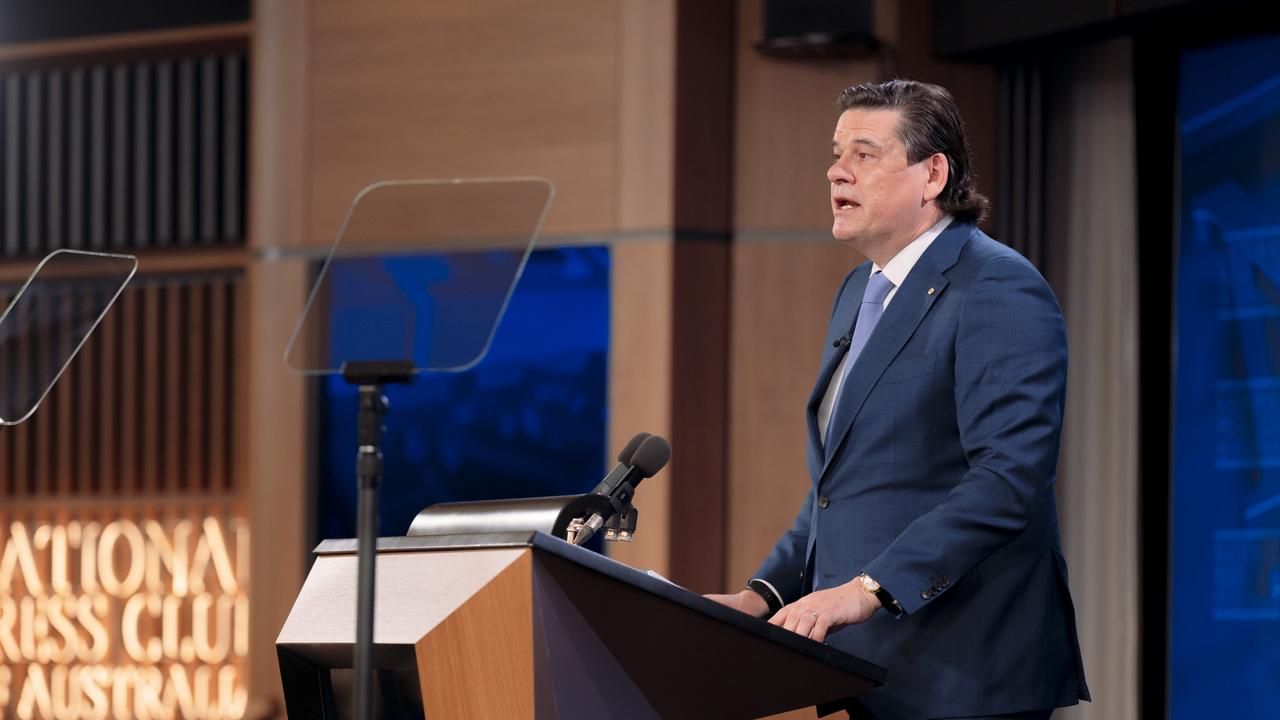Cutting pay and conditions bad for business, PM warns
The prime minister has called on bosses to ditch cuts to workers’ entitlements, arguing that one thing will help business succeed.

Bosses who cut workers’ rights and pay or sack their workers in exchange for new technology are bad for business, Prime Minister Anthony Albanese has cautioned ahead of scheduled talks on proposed changes to workplace law.
Instead, a productivity boost is key to success the prime minister said in an address to members of the national employer organisation, Ai Group, at its 150th anniversary event on Monday night.
Speaking to employers, Prime Minister Anthony Albanese asked “How can Australian manufacturing and Australian industry and Australian workers find ways to compete and succeed?”
“The answer is not a matter of cutting pay and conditions. Or replacing workers with technology … The answer is boosting productivity by finding new ways for our people and businesses to get the most out of technology,” he said.

Australia’s growing productivity problem has become a flashpoint in recent months with the government intending to introduce changes to workplace laws, and deliver on an election promise.
The outgoing Reserve Bank governor, Dr Philip Lowe, has also weighed in on the debate in appearance before parliament last Friday, cautioning that current wages growth cannot be sustained without productivity returning to its pre-pandemic growth rates.
The government is set to introduce legislation later this year that will clamp down on labour hire, increase penalties for wage theft, make it easier for casual workers to convert to permanent roles, and establish greater regulation for platform and gig employment.
The PM’s address comes ahead of a meeting of a subcommittee of the National Workplace Relations Consultative Council, known as the Committee on Industrial Legislation, later this week.

Its members include the Ai Group, alongside other powerful employer and union organisations. Top of the agenda will be the government’s proposed industrial relations reforms.
In recent months, business groups have launched campaigns targeting changes to casual employment and labour hire arrangements, claiming that they could stifle productivity and hamstring Australia’s economy.
Earlier this month, Ai Group’s chief executive Innes Willox also blasted the government’s proposed changes, labelling them as “anti-productivity”.
“None of these measures are designed to improve productivity, jobs, growth and investment which are the ingredients of a successful economy,” Mr Willox said in an address to the National Press Club.
“At its simplest, the government is seeking to deliver a union agenda, these measures are designed to grow union membership,” he said.

But the Australian Council of Trade Unions (ACTU), which is campaigning for the changes, have sought to highlight the broad support that the reforms have across the electorate, putting pressure on the government to press ahead.
Public polling released by the ACTU earlier this month, claimed that the business campaign had wasted its energy as the government’s agenda enjoyed strong community support.
“Perhaps the business lobby should pay attention and realise that attacking workers’ rights to secure jobs and better pay and a government that is trying to do something about these issues is against the wishes and interests of the Australian public,” ACTU president Michele O’Neil said at the time.



